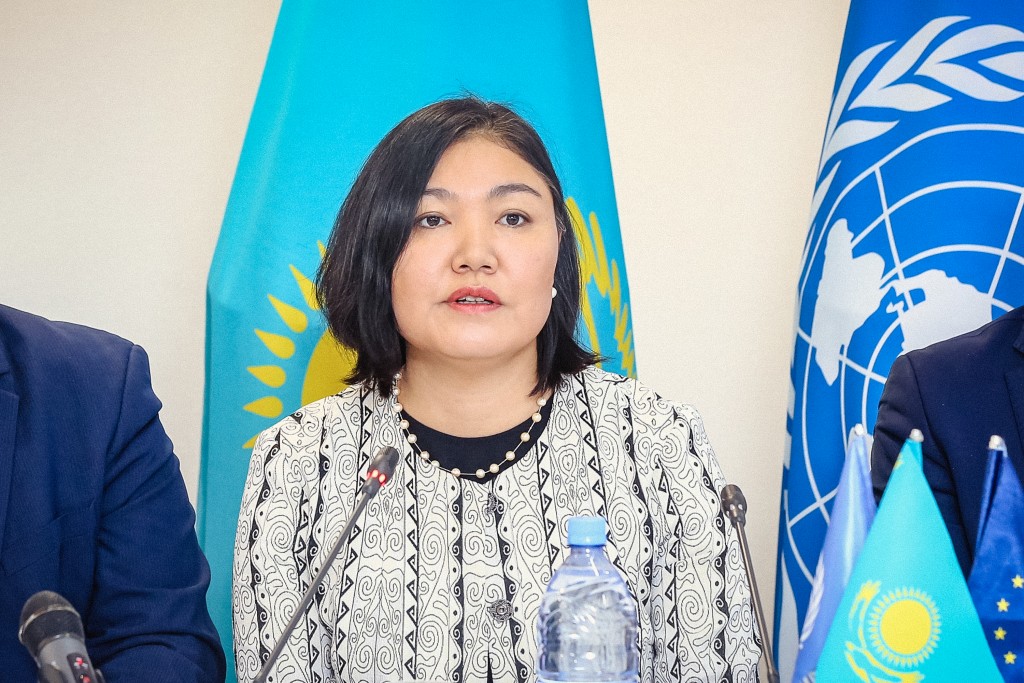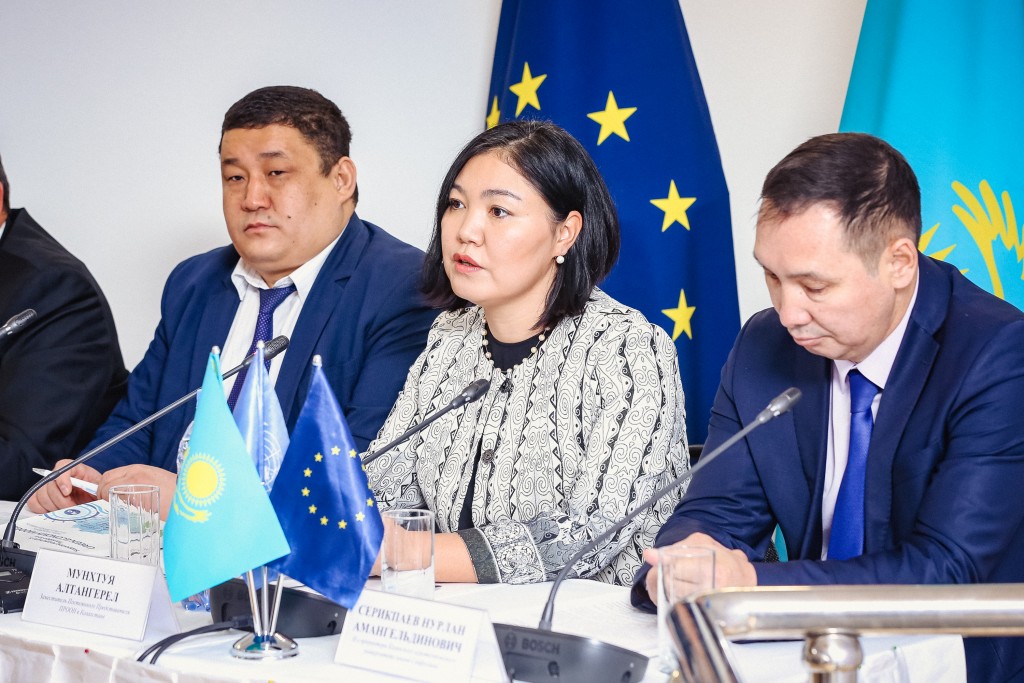ASTANA – The Green Technologies Learning Centre, which complies with Kazakhstan’s green energy concept, opened Nov. 8 in the capital. The centre is supported by the European Union (EU), United Nations Development Programme (UNDP) and United Nations Economic Commission for Europe (UNECE), which are assisting the nation’s transition to a green economy model.
“This pilot project demonstrates in practice the examples of greening of the existing business sector via integration of efficient technologies. Certainly avoiding pollution at all would be ideal for the ecology, but we are working with the realities that we have now. When the business sector sees the profitability, benefits and sustainability of such projects, it might motivate them to move towards green businesses,” said UNDP Deputy Resident Representative in Kazakhstan Munkhtuya Altangerel.
She added she hopes the project will be a bright example of implementing green economy principles in the business sector.
“The urban agriculture helps cities to become smarter and greener. It helps countries on their pathway towards an inclusive green economy, which is a key feature of the green economy agenda both in the EU and in Kazakhstan,” said EU cooperation section head in Kazakhstan Jean-Louis Lavroff.
Kazakhstan’s concept on transitioning to a green economy aims to improve the country’s ecologic, economic and social development through responsible consumption of natural resources. The nation demonstrated its commitment to move towards sustainable development and reduce carbon dioxide emission by signing the Paris Agreement, and educating local experts in green economy is an important factor in its development.
The learning centre will train with new progressive methods which can be used in agriculture and implement advanced and resource-saving technologies. The centre will also provide opportunities for students at Kazakh Agrotechnical University, farmers, entrepreneurs and public organisation representatives to gain practical skills in the agrarian sector. Trainees will also study elements of the most advanced energy and resource-saving technologies that will help to improve ways of growing vegetables by effectively using heat and energy.
At the opening ceremony, Ministry of Agriculture committee of water resources deputy chair Dauletiyar Seitimbetov highlighted the importance of developing the agrarian sector and its contribution to the country’s food security.
The сentre, free of charge for university students, is located near up-to-date greenhouses using certified green technologies in their vegetable growing operation. A thermal power station allows creating a unique micro-climate and the greenhouse structure isolates all crops from environmental impact, thus making them ecologically-friendly.
Investing in education helps to share knowledge between generations standing at the crossroads between the old “carbon” and new “low-carbon” economy. It is critical not to leave anyone behind in the process, said Lavroff.
“The EU supports the development of urban agriculture as it provides employment opportunities, enhances social inclusion, creates opportunities for entrepreneurship, alleviates food insecurity, diversifies the process of teaching agronomy and biology through interactive, experimental methods and develops skills to implement sustainable development ideas in practice,” he added.
Lavroff is a strong supporter of the programme.
“It also develops short supply chains, reducing costs for transport and emission of transport. Diversifies local economy. Utilises organic wastes that can be applied as energy production and land fertilizer. Creates green infrastructure and landscapes. Preserves biodiversity and prevents from soil erosion. All of these are part of the green economy agenda,” he said.
Pilot projects similar to the centre in different Kazakh regions demonstrate opportunities for gradual transition to a green economy through reducing pollution, saving the environment and achieving a sustainable economy. The projects are financially supported by the EU, which will be spending 7.1 million euro (US$7.8 million), and the Ministry of Agriculture committee for water resources, UNDP and UNECE are partners in the programme.
Kazakhstan’s green economy concept policy, adopted in 2013, aims to diversify the economy through careful use of natural resources. Effective water use is specified as the key pillar of the national concept and the programme goal is to contribute to the nation’s long-term, environmentally-sustainable economic development, integrating the best environmentally-friendly practices and technologies in that sector. The project, which began in 2015, will continue through 2018.
